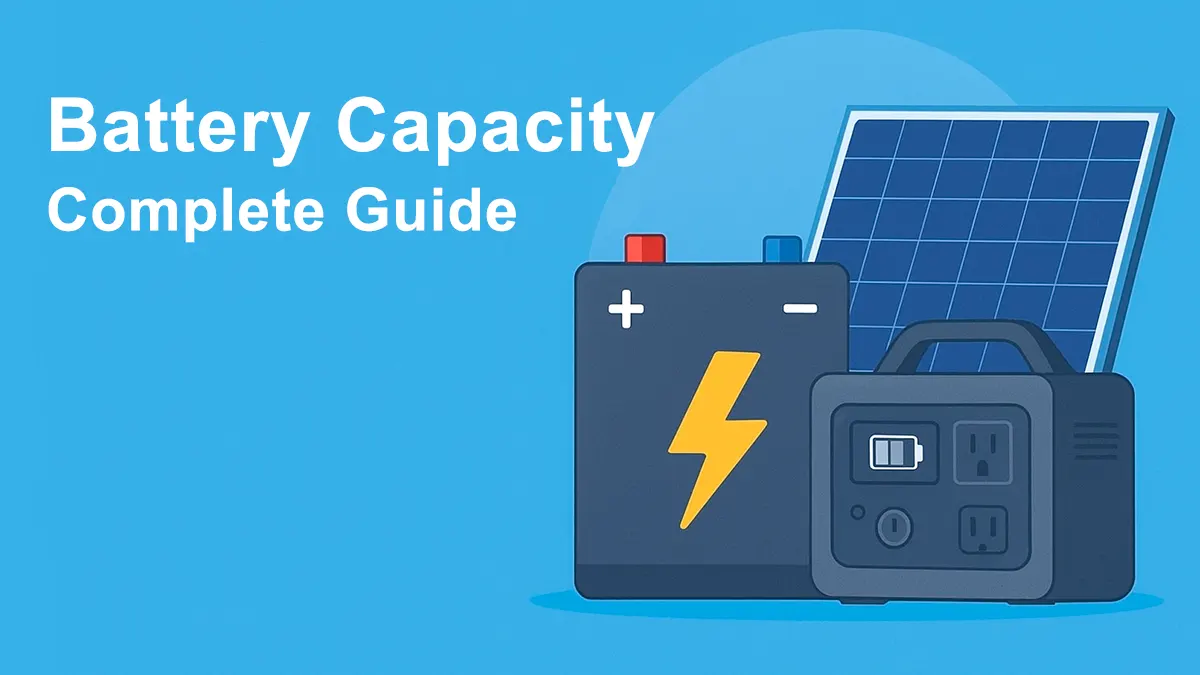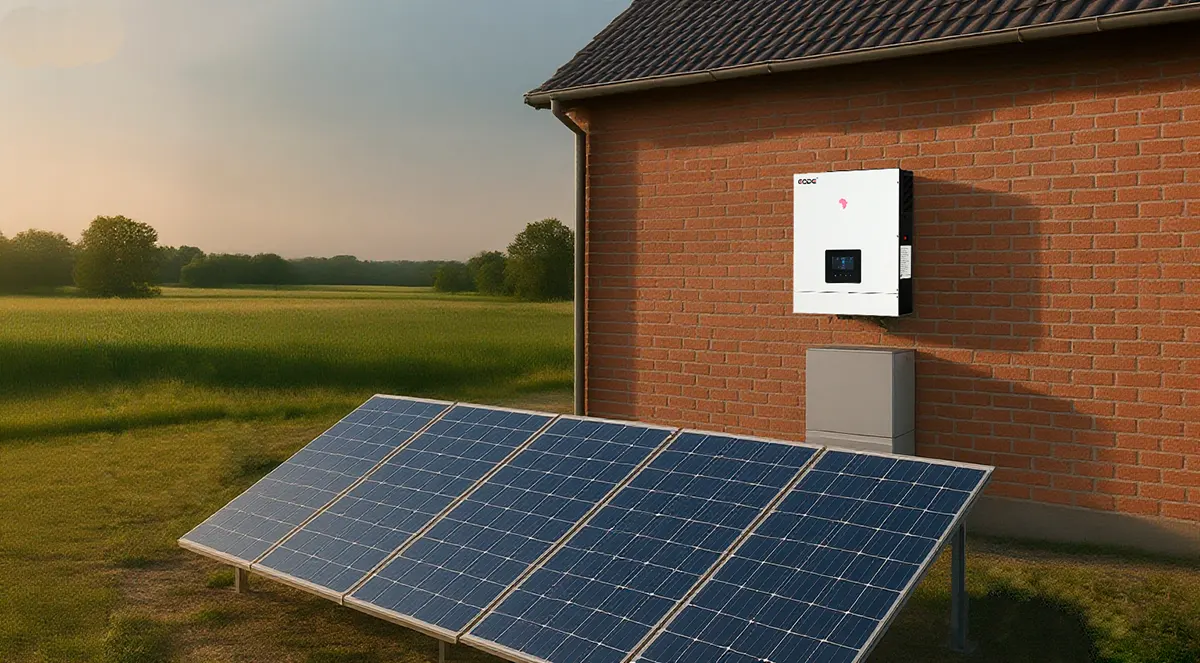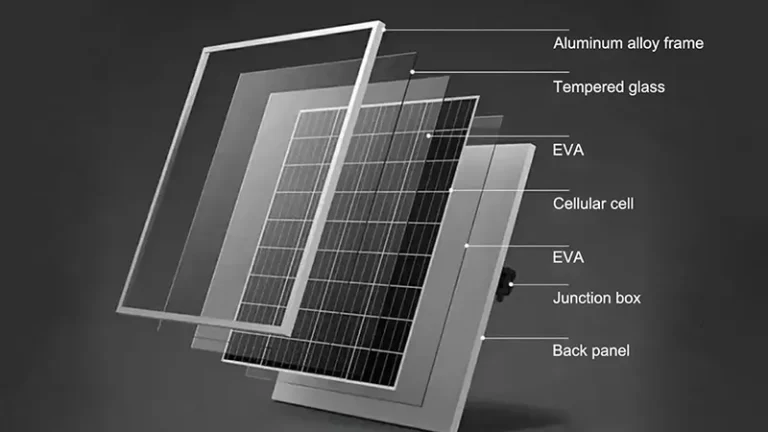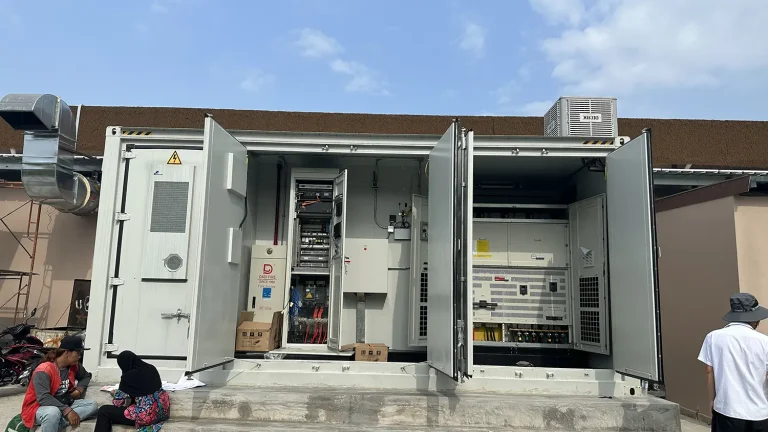سبتمبر 5، 2025
هل يستحق الأمر شراء شاحن بطارية؟
في الحياة العصرية، سواء في المنزل أو أثناء ممارسة الأنشطة الخارجية أو في العمليات التجارية، من الضروري وجود مصدر طاقة مستقر وموثوق به. لا يوفر شاحن البطارية، كجهاز رئيسي، شحنًا فعالاً وآمنًا للبطاريات القابلة لإعادة الشحن فحسب، بل يطيل أيضًا من عمر البطارية ويقلل من التكاليف ويلعب دورًا حاسمًا في حالات انقطاع التيار الكهربائي أو سيناريوهات خارج الشبكة.
تستكشف هذه المقالة مبدأ عمل شواحن البطاريات وفوائدها وتطبيقاتها في سيناريوهات مختلفة. كما أنه يقارن بين البدائل مثل شراء بطاريات جديدة، أو الاعتماد على الشبكة فقط، أو استخدام المولدات التقليدية، مما يساعدك على تحديد ما إذا كان الاستثمار في شاحن البطارية يستحق العناء، ويوفر دليل شراء لخيارات مستنيرة.
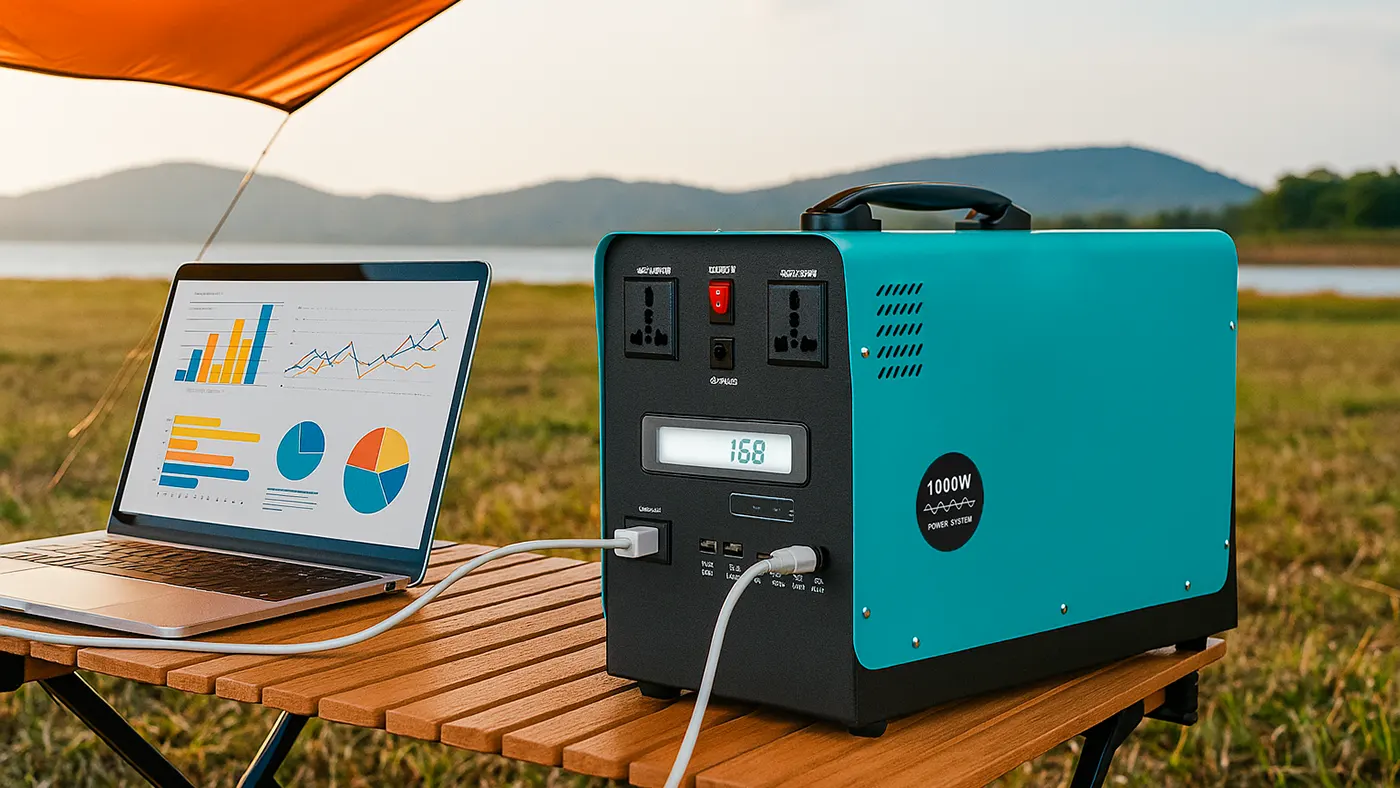
ما هو شاحن البطارية؟
شاحن البطارية هو جهاز إلكتروني مصمم لتجديد الطاقة في البطاريات القابلة لإعادة الشحن. وتتمثل وظيفته الرئيسية في تحويل مصدر طاقة خارجي (مثل التيار الكهربائي الرئيسي أو طاقة السيارة) إلى تيار مباشر مناسب لشحن البطارية، مع التحكم الدقيق في الجهد والتيار لضمان عملية شحن آمنة وفعالة.
لا يوفر الشاحن عالي الجودة تيارًا مستقرًا فحسب، بل يتكيف أيضًا بذكاء وفقًا للخصائص الكيميائية للبطارية، مما يطيل عمر البطارية.
فوائد امتلاك شاحن بطارية
قابلية النقل والملاءمة
غالباً ما تكون الشواحن محمولة، مما يسمح بشحن الأجهزة في أي وقت وفي أي مكان. وهذا مثالي للسفر أو الأنشطة الخارجية أو الاستخدام المكتبي دون الاعتماد على منافذ الطاقة الثابتة.
الطاقة النظيفة
تتمثل إحدى المزايا الرئيسية للجمع بين شاحن البطارية وألواح الطاقة الشمسية في القدرة على توليد طاقة نظيفة ومتجددة وتخزينها. على عكس الشحن التقليدي المعتمد على الشبكة، تقوم أجهزة الشحن بالطاقة الشمسية بتحويل ضوء الشمس إلى كهرباء، ويتم تحسينها بواسطة وحدات تحكم MPPT لشحن فعال وآمن.
وهذا يسمح بالشحن بدون تكلفة كهربائية. وبمجرد تركيبها، توفر الطاقة الشمسية طاقة مجانية بشكل مستمر، مما يقلل من فواتير الكهرباء والاعتماد على الشبكة، وهو أمر مهم بشكل خاص في المناطق التي ترتفع فيها أسعار الكهرباء أو التي تعاني من عدم استقرار الإمداد.
نظرًا لأن وحدة التحكم MPPT هي في الأساس شاحن بطارية، فإنها تجعل الشحن بالطاقة الشمسية أكثر كفاءة وأمانًا مع تعزيز الحياة المستدامة وتقليل انبعاثات الكربون والاعتماد على الوقود الأحفوري.
الوفورات في التكاليف
الاعتماد على البطاريات التي تستخدم لمرة واحدة أو خدمات الشحن الخارجية مكلف مع مرور الوقت. يسمح استخدام شاحن البطارية بإعادة استخدام البطاريات، مما يقلل من التكاليف - خاصة بالنسبة لمالكي السيارات الكهربائية أو المنازل خارج الشبكة.
الدعم الاحتياطي في حالات الطوارئ
أثناء انقطاع التيار الكهربائي، توفر شواحن البطاريات أو أنظمة التخزين طاقة موثوقة - من أجهزة الكمبيوتر المحمولة والأجهزة المنزلية إلى مرافق الأعمال الصغيرة. ويضمن الجمع بين الطاقة الشمسية والشاحن استقلالية الطاقة، مما يحافظ على تشغيل الأجهزة المهمة.
من يحتاج حقاً إلى واحدة؟
المستخدمون الأفراد/الأسر المعيشية
يضمن لك شاحن البطارية الراحة والأمان في الحياة اليومية. سواء كنت تشحن جهاز iPhone أو MacBook أو الأجهزة المنزلية أو مصادر الطاقة الاحتياطية الصغيرة، يضمن لك الشاحن المناسب توافر الطاقة.
في المناطق التي تشهد انقطاعًا متكررًا أو عدم استقرار الطاقة، تسمح محطات الطاقة المحمولة أو أجهزة الشحن بالطاقة الشمسية للمنازل بالحفاظ على الإضاءة والاتصالات والعمليات الأساسية. وبالاقتران مع ألواح الطاقة الشمسية، يمكن للمنازل أن تحقق شحنًا بدون تكلفة كهربائية، وتقلل من نفقات الطاقة على المدى الطويل، وتوفر بيئة أكثر أمانًا واستقرارًا.
على سبيل المثال، فإن GODE محطة الطاقة المحمولة DQ1208 يمكن شحنها من التيار الكهربائي باستخدام شاحن بطارية محمول، حتى في غياب ضوء الشمس.
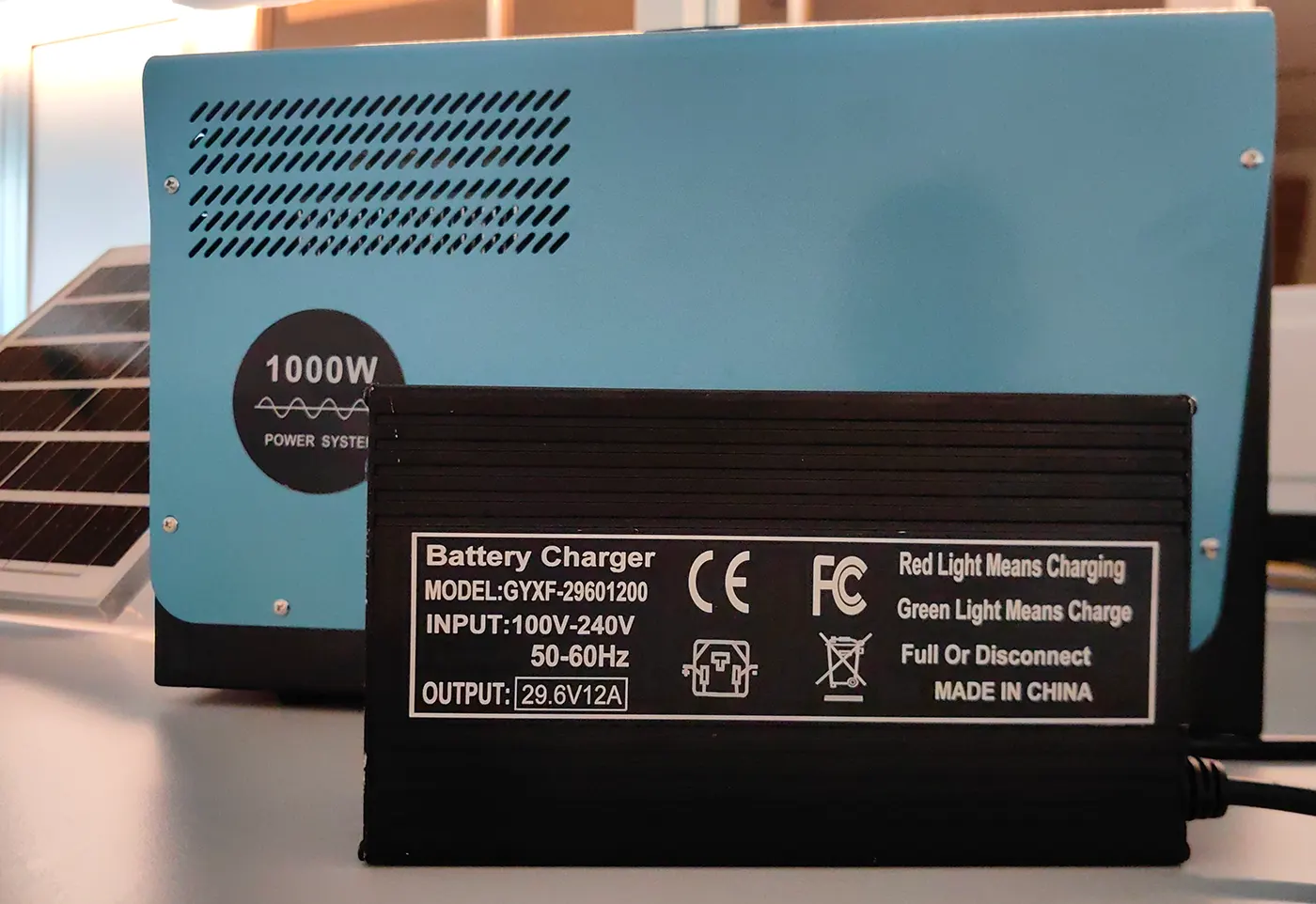
عشاق الهواء الطلق
شواحن البطاريات المحمولة ضرورية للمخيمين والمسافرين والمغامرين. في المواقع خارج الشبكة، يمكن لأجهزة الشحن بالطاقة الشمسية أو محطات الطاقة المحمولة تشغيل الهواتف والإضاءة والطائرات بدون طيار وأجهزة الراديو والأجهزة الصغيرة، مما يعزز السلامة والتجربة في الهواء الطلق.
الشركات الصغيرة والمتوسطة
تواجه الشركات ارتفاع تكاليف الكهرباء وعدم استقرار الإمدادات. تسمح خزانة تخزين الطاقة الشمسية المزودة بنظام شحن البطاريات بتخزين الطاقة الشمسية النهارية بكفاءة للاستخدام الليلي أو في حالات الطوارئ.
يعمل هذا الإعداد كنظام طاقة احتياطية اقتصادية وموثوقة ويقلل من الخسائر الناجمة عن انقطاع التيار الكهربائي، ويقلل من تكاليف الكهرباء على المدى الطويل، ويحسن من القدرة التنافسية الخضراء.
التجارية والصناعية
أنظمة التخزين على نطاق واسع هي أجهزة شحن بطاريات متقدمة، وإدارة بنوك البطاريات الضخمة، وتحسين كفاءة الشحن/التفريغ، ودمج الطاقة الشمسية أو طاقة الرياح لتنظيم الشبكة والاحتياطي في حالات الطوارئ.
شاحن البطارية مقابل البدائل
مقابل شراء بطاريات جديدة
شراء بطاريات جديدة أمر بسيط ولكنه مكلف وغير صديق للبيئة على المدى الطويل. يسمح شاحن البطارية بالاستخدام المتكرر للبطارية، مما يطيل عمر البطارية ويقلل من النفايات الإلكترونية ويوفر المال. مع بطاريات Li-ion و LiFePO4، يضمن الشاحن المناسب أداءً مستقرًا لسنوات.
مقابل الاعتماد على الشبكة فقط
الاعتماد على الشبكة فقط يترك المستخدمين بلا طاقة أثناء انقطاع التيار الكهربائي. وبفضل شاحن البطارية ونظام تخزين الطاقة، يمكن للمنازل والشركات الاستمرار في العمل دون انقطاع، مما يمنع حدوث أي انقطاع في الحياة اليومية أو الإنتاج.
عند إقرانها بألواح شمسية ووحدة تحكم MPPT، تقلل شواحن البطاريات بشكل كبير من الاعتماد على الشبكة وتخفض تكاليف الكهرباء. يعتبر حل الطاقة خارج الشبكة هذا ذا قيمة خاصة في المناطق ذات أسعار الكهرباء المرتفعة أو الإمدادات غير المستقرة، مما يضمن أمن الطاقة واستقلالية أكبر.
مقابل المولدات التقليدية
في حين أن مولدات الوقود التقليدية يمكنها توفير الطاقة في حالات الطوارئ أثناء انقطاع التيار الكهربائي، إلا أنها مزعجة ومكلفة في التشغيل وتصدر انبعاثات كربونية كبيرة. وعلى النقيض من ذلك، تعمل أجهزة شحن البطاريات المزودة بأنظمة تخزين بهدوء، ولا تحتاج إلى وقود، وتكاليف صيانتها منخفضة، ويمكنها الاستفادة من الطاقة الشمسية للحصول على كهرباء خضراء عديمة الانبعاثات.
وهذا يعني أنه في حالات الطوارئ، يحصل المستخدمون على طاقة مستقرة بطريقة صديقة للبيئة، مع تجنب اضطرابات الضوضاء وتلوث الهواء، مما يحقق تجربة طاقة مستدامة حقيقية.
أشياء يجب أخذها في الاعتبار قبل شراء شاحن بطارية
نوع البطارية
تتطلب أنواع البطاريات المختلفة شواحن متوافقة، مما يجعل هذا أحد أهم الاعتبارات قبل الشراء. تشمل الأنواع الشائعة بطاريات الرصاص الحمضية وبطاريات NiMH وبطاريات الليثيوم. بطاريات الليثيوم هي السائدة الآن نظراً لكثافة طاقتها العالية وعمر دورتها الطويل وخصائصها خفيفة الوزن.
تُستخدم بطاريات LiFePO4 على نطاق واسع في حلول تخزين الطاقة الشمسية وحلول الطاقة المحمولة نظراً لسلامتها المعززة وعمرها الطويل. عند شراء شاحن بطارية، تأكد من توافقه مع نوع البطارية المستهدفة لتجنب انخفاض العمر الافتراضي أو مخاطر السلامة الناتجة عن عدم تطابق مواصفات الشحن.
كفاءة الشحن
تؤثر كفاءة الشحن بشكل مباشر على تجربة البطارية. غالباً ما تفشل أجهزة الشحن العادية في الاستفادة الكاملة من الطاقة المتاحة عند تذبذب جهد الدخل.
وحدات التحكم في شحن الطاقة الشمسية MPPT هي 20%-30% أكثر كفاءة من أجهزة الشحن PWM أو أجهزة الشحن القياسية. فهي تتكيف ديناميكيًا مع ظروف ضوء الشمس لاستخراج أقصى قدر من الطاقة من الألواح الشمسية.
المقياس
يعتمد اختيار شاحن البطارية أيضاً على حجم التطبيق:
- محطات طاقة محمولة أو مولدات طاقة شمسية متنقلة للتخييم أو السفر أو الاحتياطية المنزلية في حالات الطوارئ.
- تعمل خزانات التخزين المنزلي مع أنظمة الطاقة الشمسية الكهروضوئية، حيث تقوم بتخزين الطاقة الشمسية أثناء النهار لاستخدامها ليلاً أو في أوقات الانقطاع، مما يقلل من فواتير الكهرباء ويعزز الاستقلالية في مجال الطاقة.
- مصممة للمصانع أو مجمعات الشركات أو المرافق، وتدعم مصفوفات البطاريات الكبيرة مع الإدارة الذكية. وهي في الأساس أجهزة شحن بطاريات متطورة لموازنة الشبكة وتكامل الطاقة المتجددة والاحتياطي في حالات الطوارئ.
اختر المقياس المناسب وفقًا للاحتياجات الفعلية والميزانية لتجنب السعة الزائدة أو عدم كفاية إمدادات الطاقة.
تقدم GODE منتجات تتراوح ما بين الطاقة المحمولة والتخزين المنزلي والتخزين التجاري، وجميعها مزودة بشواحن بطاريات متوافقة، مما يزيل عناء الاختيار.
قابلية التوسعة
تتجه أنظمة الطاقة في المستقبل نحو المرونة والتنويع، مما يجعل قابلية الشاحن للتوسع أمرًا بالغ الأهمية.
- خارج الشبكة: تشغيل مستقل تماماً، مثالي للمناطق النائية أو طاقة الطوارئ.
- مربوطة بالشبكة: يمكن إعادة الطاقة الفائضة إلى الشبكة للحصول على إيرادات أو تعويضات الفواتير.
- هجين: يدعم كلاً من الوضعين المربوط بالشبكة وغير المربوط بها، مما يلبي الاحتياجات المتنوعة بمرونة.
بالنسبة للأفراد والشركات الصغيرة والمتوسطة، توفر شواحن البطاريات ذات الوضع الهجين مرونة وأماناً أكبر، مما يسمح بتوفير الطاقة الشمسية مع التحول تلقائياً إلى الطاقة الاحتياطية أثناء انقطاع التيار الكهربائي.
الخاتمة
بغض النظر عما إذا كنت مستخدمًا منزليًا أو متحمسًا في الهواء الطلق أو صاحب عمل، فإن شاحن البطارية هو جهاز أساسي لضمان إمداد طاقة مستقرة وآمنة وفعالة من حيث التكلفة. فهو لا يطيل عمر البطارية ويقلل من النفقات فحسب، بل يدعم أيضًا أسلوب الحياة والإنتاج الأخضر والمستدام. عند دمجها مع أنظمة الطاقة الشمسية وأجهزة التحكم الذكية، يمكن للمستخدمين تحقيق الاستقلالية في مجال الطاقة والاستجابة لانقطاع التيار الكهربائي وتقليل انبعاثات الكربون.
الأسئلة الشائعة حول شاحن البطارية
المشاركة

